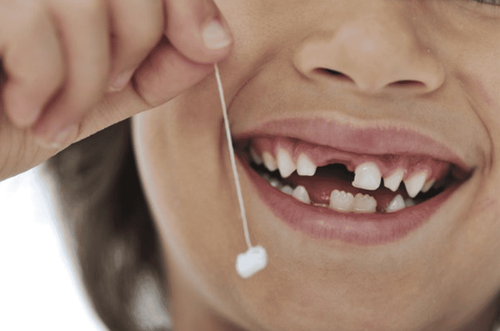This is an automatically translated article.
Newborn babies will not have teeth yet, on average by 6 months, babies start their first teeth, 12 months have about 6 teeth and by 24 months will have a full set of baby teeth including 20 teeth, 10 in upper jaw and 10 in lower jaw. The baby teething schedule is different for each child, but the time difference is usually less than a year.
Children's teething schedule lasts about 2 years, from 6 months old to 2 and a half years old to complete with all the teeth on the mouth. There are cases where the baby teething very early or teething late, parents do not need to worry much because it may be due to genetic causes or tooth structure that causes the baby to grow teeth slowly, the time difference is usually less than 1 year. Mothers can monitor the child's teething schedule when there are signs of teething such as:
The child is fussy, tired, irritable, easily agitated; Excessive drooling, red gums, possibly sores; Frequent biting, chewing on objects, grinding gums, gnawing fingers; Mild digestive disorder, also known as the phenomenon of "tooth eruption"; Mild fever. Usually, cases of teething fever will not exceed 38 degrees Celsius; Children eat poorly, lose weight. The signs of teething in children usually appear about 3 to 5 days before the tooth erupts and disappear after 3-7 days.
Children's teething schedule varies physically, some 4.5 months old have teeth, but many babies are about 1 year old when the first tooth appears. However, don't worry, babies only need to start teething within the first year of life to fully develop normally.
The order of eruption of baby teeth in children can be in the following sequence:
4 middle incisors of the upper and lower jaws: 5-8 months; 4 side incisors: 7-10 months; First 4 molars: 12-16 months; 4 canines: 14-20 months; 4 second molars: 20-32 months; Each child will have a different order in which their baby teeth erupt. When young children cannot brush their teeth, adults can use milk towels with boiled water to cool or physiological saline to clean children's teeth daily, when children are 2 years old, they can practice brushing their teeth. than children can brush their own teeth, in the period when the child is 3-5 years old, parents should support brushing their child's teeth, especially in the evening because at this stage the child is busy playing and has not been able to brush his teeth, so there will be risk of tooth decay.
Regularly observe the child's teeth, if there are abnormal signs such as black marks, small holes appear on the teeth, it is necessary to take them to the dentist for early sealing.
In addition, parents should also apply some methods of changing habits and improving nutrition to support the child's teeth to develop better.
Besides, parents also need to supplement their children with essential micro-minerals such as zinc, lysine, chromium, selenium, vitamin B1, ... to fully meet the nutritional needs of children. The addition of these essential vitamins also supports digestion, enhances nutrient absorption, improves anorexia, and helps children eat well. Parents can simultaneously apply dietary supplements and functional foods derived from nature for easy absorption. The most important thing is that improving your baby's symptoms often takes a long time. Combining many types of functional foods at the same time or changing many types in a short time can make the baby's digestive system unable to adapt and completely not good. Therefore, parents must be really patient with their children and regularly visit the website vimec.com to update useful baby care information.













